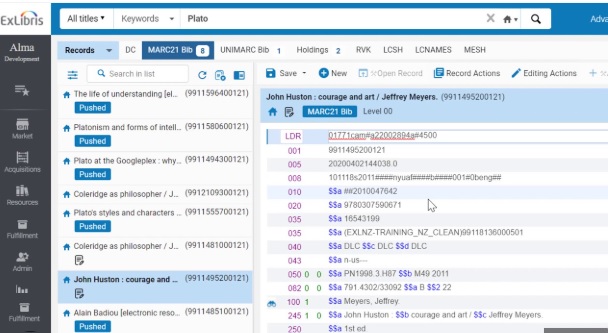A New Era in Library Cataloging: The AI Metadata Assistant
Cataloging publications is one of the core functions of a library, ensuring efficient information retrieval and access to resources for users. Traditional cataloging methods are time-consuming and require specialized knowledge of metadata standards such as MARC21 and Dublin Core. Today, catalogers can benefit from the AI Metadata Assistant integrated into the ALMA Library Services Platform (Ex Libris) – a technology that not only optimizes the cataloging process but also helps librarians enhance bibliographic records using advanced data analysis methods.
By leveraging large language models and machine learning algorithms, the AI Metadata Assistant automatically generates metadata, analyzing a publication’s content, titles, authors, and summaries while suggesting cataloging information based on established standards, processes digital documents, using OCR technology to recognize text from scanned materials and even extract contextual meaning from audio and video sources, identifies subject areas and provides classification and indexing data to improve resource discover.
It is important to emphasize that the AI assistant is not a replacement for catalogers – rather, it is an intelligent assistant that reduces routine workload and allows professionals to focus on more complex cataloging tasks. However, the AI assistant can significantly shorten metadata generation time from hours to minutes, reduce the risk of human errors, and enhance catalog records through automated data enrichment, making it easier for the community to find the necessary information resources.



